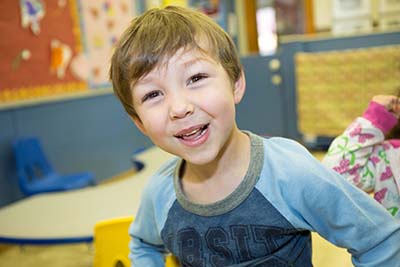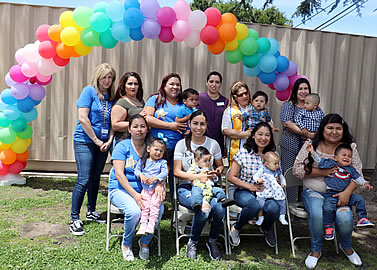Over 15 years ago, LENA was founded to accelerate language development in children birth to three, in order to improve their cognitive, social, and emotional health and to close opportunity gaps. In our earliest years, we partnered extensively with universities and clinical researchers around the world to assess and validate our technology. As LENA became the global standard for measuring early language environments, our focus has shifted to our founders’ original goal of putting that actionable and objective feedback into the hands of parents, teachers, and caregivers. Universities continue to be important partners, both in research settings as well as in delivering community-based programming.
University partners have found that, through LENA programs, they can take their research findings and turn them into action within their surrounding community, while also continuing to produce quantifiable outcomes and data to help them better understand how to support children, families, and teachers. LENA programs also provide an opportunity to build partnerships with other local stakeholders and for students and faculty to get hands-on experience.
Here are just a few examples of our more than 45 university partnerships and how we are reaching children together across the country:
Adelphi University (Garden City, N.Y.)
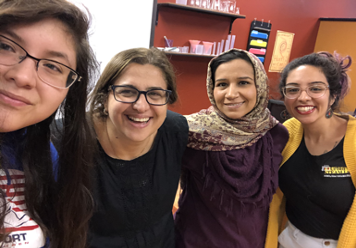 Dr. Reem Khamis-Dakwar was investigating language assessment in Arabic-speaking children in the United States and found that children raised in minority-language-speaking communities have distinctive language acquisition due to the incomplete acquisition and/or attrition of their first language. Research has shown that this early shift in the amount of exposure and use of a home language may impact language development and educational engagement down the line. As a result of her findings, Dr. Khamis-Dakwar pursued a LENA Start launch grant to provide parents from minority communities with training and support so that they can maintain continued exposure to both of the child’s languages, facilitating language growth and learning. Through support from students and clinical faculty, Dr. Khamis-Dakwar is building a movement that is making an impact for families participating in the program, as well as for students and clinical faculty who support program implementation. “We’re not just saying that diversity is important. We’re actually putting in the work to be part of something that is important,” she explained.
Dr. Reem Khamis-Dakwar was investigating language assessment in Arabic-speaking children in the United States and found that children raised in minority-language-speaking communities have distinctive language acquisition due to the incomplete acquisition and/or attrition of their first language. Research has shown that this early shift in the amount of exposure and use of a home language may impact language development and educational engagement down the line. As a result of her findings, Dr. Khamis-Dakwar pursued a LENA Start launch grant to provide parents from minority communities with training and support so that they can maintain continued exposure to both of the child’s languages, facilitating language growth and learning. Through support from students and clinical faculty, Dr. Khamis-Dakwar is building a movement that is making an impact for families participating in the program, as well as for students and clinical faculty who support program implementation. “We’re not just saying that diversity is important. We’re actually putting in the work to be part of something that is important,” she explained.
Rice University (Houston, Texas)
After being introduced to LENA during his graduate studies with Dr. James Heckman at the University of Chicago, Dr. Flávio Cunha has worked with LENA data over many years. Prior efforts include work in Philadelphia. Dr. Cunha led the Philadelphia Human Development study and later teamed with Dr. Marsha Gerdes on an RCT of the LENA Start program to examine change in maternal beliefs in addition to traditional metrics available through LENA technology. In partnership with Alief Independent School District, Dr. Cunha and his team are readying for the launch of a multi-year RCT of LENA Start in the Houston area, including some adaptations for remote implementation necessitated by COVID-19.
Learn more about how Adelphi University and University of the Pacific have taken on an innovative role in the cradle-to-career pipeline in their communities.
University of the Pacific (Stockton, Calif.)
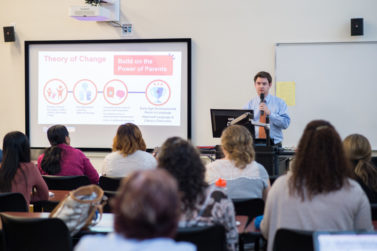
Dr. Pam Eibeck, president of the University of the Pacific, challenged her team: “I don’t want this to be another presentation where everyone is excited and nothing happens.”
The university’s community relations team, led by director Mike Klocke, rose to the challenge, convening a coalition to discuss how to implement LENA Start and LENA Home. With support from the University, First 5 San Joaquin funded home education partners (including the San Joaquin County Office of Education) and the Stockton-San Joaquin Public Library. Both launched the LENA programs in early 2018.
The first year provided proof of concept. As year two rolled around, the University of the Pacific, having fulfilled their goal as initiator, officially passed program leadership to the San Joaquin County Office of Education. Baiocchi’s team is looking to expand use of LENA Home into Early Head Start home visits as a supplemental curriculum, and has partnered with the Child Abuse Prevention Council to expand programming throughout the county. The library is also planning new LENA Start sessions at three branches.
University of Memphis (Memphis, Tenn.)
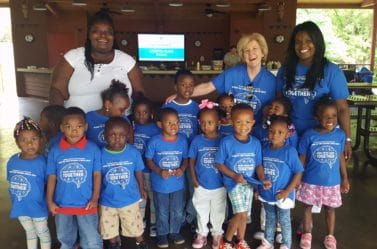
Students from the child development and family studies program help to support program implementation, which gives them hands-on experience in early care and learning settings like family child care homes and child care centers in the Memphis area. This work combines the university’s strength in research with their mission for service to benefit the local community.
To read more about some of our other university partnerships, take a look at the following blog posts:
How the Juniper Gardens Project through University of Kansas has piloted LENA Grow to improve quality in early childhood classrooms
How ASU’s Dr. Beate Peter is using LENA technology in the Speech/Language Genetics Lab
How Iowa State University and Ames Public Library teamed up to increase conversational turns for families in Story County
UC Merced researchers using LENA featured on the new Netflix documentary, Babies




